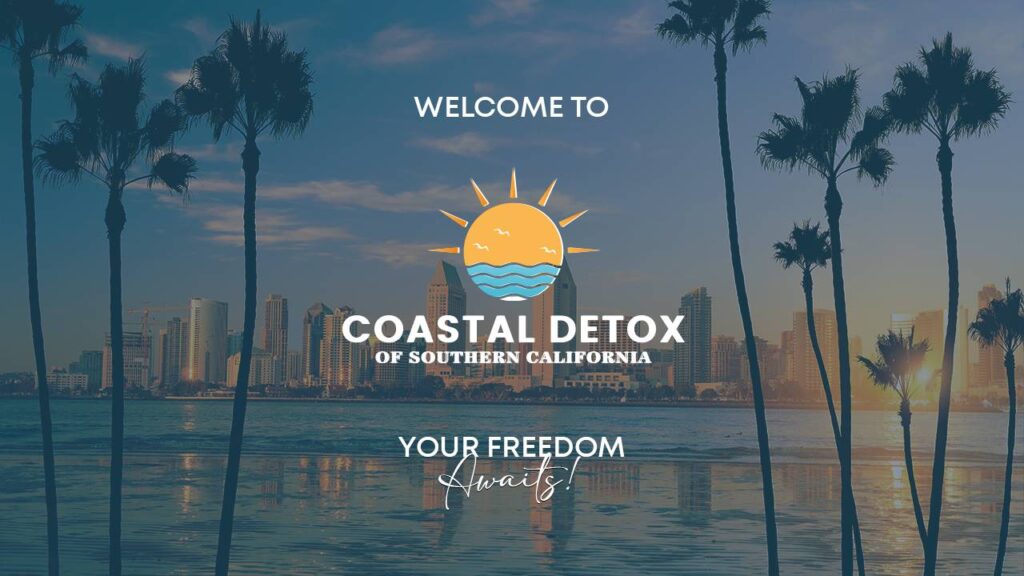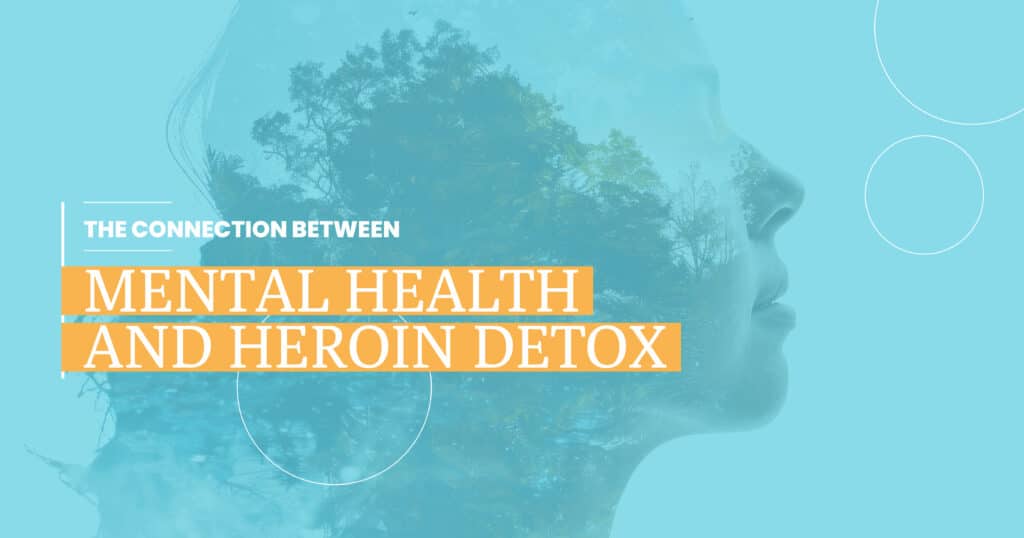Heroin addiction is a devastating illness with severe physical and psychological consequences. While the physical withdrawal symptoms of heroin detox are well-documented, the connection between mental health and heroin detox is often overlooked. This crucial link significantly impacts detox success and paves the way for long-term recovery.
This blog post dives into the intricate relationship between mental health and heroin detox. We’ll explore how underlying mental health conditions can contribute to heroin use, how they affect the detox process, and the importance of addressing mental health alongside physical withdrawal.
Understanding the Roots: Why Mental Health and Heroin Use Are Linked
- Self-medication: Many people who struggle with heroin addiction turn to the drug as a way to self-medicate underlying mental health issues like depression, anxiety, or PTSD. Heroin’s euphoric effects can provide temporary relief from emotional pain, creating a cycle of dependence.
- Dual Diagnosis: Co-occurrence of a mental health disorder and a substance use disorder (SUD) is a well-established phenomenon known as a dual diagnosis. Studies suggest that up to 75% of people with heroin addiction also have a co-occurring cognitive health condition.
- Increased Vulnerability: Mental health challenges can make individuals more susceptible to addiction. Factors like low self-esteem, difficulty coping with stress, and a lack of social support can create a vulnerable space where drug use seems like a viable solution.
The Rollercoaster Ride: How Mental Health Affects Heroin Detox
Detoxification, the process of removing heroin from the body, is notoriously challenging. The physical withdrawal symptoms alone can be incredibly uncomfortable, causing:
- Muscle aches and cramps
- Nausea and vomiting
- Diarrhea
- Insomnia
- Anxiety and depression
However, mental health issues can further complicate this already difficult period. Here’s how:
- Intensified Cravings: Individuals with depression or anxiety may experience heightened cravings during detox due to emotional distress and difficulty coping with negative feelings.
- Increased Risk of Relapse: The emotional turmoil and lack of healthy coping mechanisms associated with unaddressed cognitive health issues can significantly increase the risk of relapse during or after detox.
- Medication Interactions: Medications used to treat mental health conditions can sometimes interact with medications used to manage withdrawal symptoms, requiring careful monitoring by a healthcare professional.
Building a Strong Foundation: Addressing Mental Health During Detox
Fortunately, practical treatment approaches can address both the physical and mental aspects of heroin addiction. Here’s what you can expect:
- Comprehensive Assessment: A thorough assessment by a qualified professional will identify any co-occurring mental health disorders to create a personalized treatment plan.
- Medication-Assisted Treatment (MAT): MAT combines medication to manage withdrawal symptoms with therapy to address underlying mental health issues. This improves the chances of a successful detox and long-term recovery.
- Individualized Therapy: Therapy provides individuals with the tools they need to manage their mental health, develop healthy coping skills, and build resilience against relapse. Different therapeutic approaches, like cognitive behavioral therapy (CBT) and dialectical behavior therapy (DBT), can be highly effective.
- Support Groups: Connecting with others individuals who understand the challenges of addiction can provide invaluable support, encouragement, and a sense of belonging during detox and recovery.
Beyond Detox: Building a Life in Recovery
While detox is a crucial first step, it’s just the beginning of the journey towards sustained recovery. A comprehensive treatment care that addresses both mental health and addiction is essential for long- term success. Here are some key elements:
- Relapse Prevention Planning: Developing a plan with clear strategies to identify triggers, manage cravings, and resist relapse empowers individuals to navigate challenges and stay committed to their recovery.
- Building a Support System: Surrounding yourself with positive and supportive people – family, friends, therapists, and support groups – is vital for providing encouragement and accountability throughout the recovery process.
- Holistic Wellness Practices: Engaging in activities that promote overall well-being, such as exercise, healthy eating, and mindfulness practices, can significantly enhance mental and physical health.
Conclusion: Breaking the Chains Together
There’s a strong connection between mental health and heroin detox. By recognizing this connection and using treatment plans that deal with both, we can improve our chances of getting better and staying better. You’re not on your own in this. Some people can help, and if you have the right support and are committed to getting better, you can beat addiction and make a better life for yourself.









